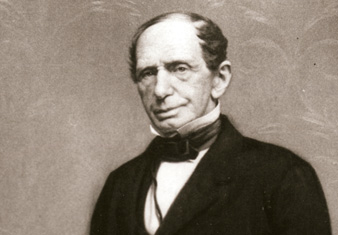
Signature Strengths
Cross-university research initiatives, fueled by philanthropy.
In 2013, the university identified five “signature initiatives” for the Rising to the Challenge campaign—areas where it could leverage its many strengths and make a profound difference on emerging global challenges.
 The five initiatives spanned individualized health, the science of learning, the future of cities, the sustainability of water resources, and global health.
The five initiatives spanned individualized health, the science of learning, the future of cities, the sustainability of water resources, and global health.
The Individualized Health Initiative has brought together experts in biomedical science, data science, and engineering from the university, health system, and Applied Physics Lab to design personalized approaches to medicine. One project incubated by the initiative will individualize the screening of tumors; another will use data to guide the insertion of stents in hearts; and still another will create individually targeted radiation therapy. All said, the initiative has drawn $143 million in philanthropy since the launch of the campaign.
One project incubated by the initiative will individualize the screening of tumors; another will use data to guide the insertion of stents in hearts; and still another will create individually targeted radiation therapy.
 The Science of Learning Institute seeks to connect more than 500 scholars from the cognitive and brain sciences, education, engineering, medicine, arts, and other disciplines to better understand the processes and underpinnings of the entirety of human learning, from molecule to classroom. The institute has funded more than a dozen cross-disciplinary research endeavors to better understand how learning occurs in humans, animals, and machines, and to use those findings to provide insights into how learning can be optimized for all individuals across the lifespan and across different kinds of talent. An initial symposium drew almost 450 participants from universities, industry, government, nonprofits, think tanks, and medical and health services organizations across the nation.
The Science of Learning Institute seeks to connect more than 500 scholars from the cognitive and brain sciences, education, engineering, medicine, arts, and other disciplines to better understand the processes and underpinnings of the entirety of human learning, from molecule to classroom. The institute has funded more than a dozen cross-disciplinary research endeavors to better understand how learning occurs in humans, animals, and machines, and to use those findings to provide insights into how learning can be optimized for all individuals across the lifespan and across different kinds of talent. An initial symposium drew almost 450 participants from universities, industry, government, nonprofits, think tanks, and medical and health services organizations across the nation.
The signature initiatives are all at different stages of development and are following different paths. And work will continue on how best to ensure that the initiatives are fully integrated into the academic and research trajectories of each of the schools. Already though, more than $345 million in total giving has been directed across the entire university toward these five areas of collaborative focus.


